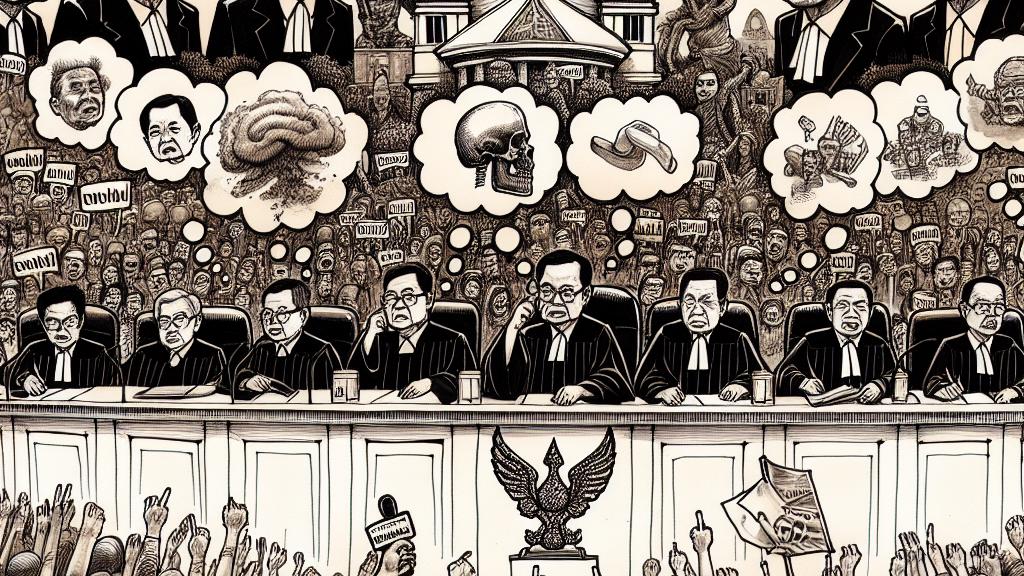Judicial Jabs: Judge's Sarcasm Sparks Outrage Over Political Party Disbandment!
Overview
- Judge Udom Sittiwirattham faces backlash in Thailand for sarcastic comments following the disbandment of the Move Forward Party.
- His remarks about the financial gains for the party raise serious ethical concerns regarding judicial conduct.
- The ruling reflects escalating tensions in Thailand over political reforms and the controversial lese-majeste law that restricts criticism of the monarchy.

A Storm in Thailand's Judiciary
Recently, Thailand's political scene has been rocked by a controversial statement made by Constitutional Court judge Udom Sittiwirattham. His comment suggested that the disbandment of the popular Move Forward Party benefited them financially, as they quickly raised significant donations for their new identity, the People's Party. This statement was made during a seminar regarding the judiciary's role in protecting citizens' rights, yet it has ignited a fierce debate about judicial independence. Many civic leaders and politicians argue that such remarks undermine the integrity of the judiciary, indicating a troubling entanglement of judicial authority and political narratives. The public outcry emphasizes a collective demand for accountability and clarity in judicial roles.
Ethics Under Fire: The Judicial Code of Conduct
The backlash from Judge Udom's remarks has drawn attention to the ethical standards expected from judicial figures in Thailand. Critics, including members of the People's Party, have called on the judge to reflect on the principles outlined in the judicial code of conduct. This code prohibiting judges from making public comments that may appear biased or sarcastic is fundamental to maintaining public trust in the judicial system. Legal analysts assert that the principle of impartiality is vital for the judiciary’s role in a democracy; any breach of that trust could lead to further erosion of faith in legal institutions. The resulting discourse around judicial ethics highlights a growing concern about how the judiciary operates within a politically charged environment, demanding a reevaluation of its independence.
Political Ramifications and the Search for Reform
The disbandment of the Move Forward Party not only raises questions about recent judicial actions but also touches upon broader issues about Thailand's political landscape, particularly regarding the lese-majeste law. This controversial law, which criminalizes criticism of the monarchy, has come under increased scrutiny and is seen by many as a tool for political suppression. As the People’s Party, now backed by substantial funding, seeks to redefine its presence in Thai politics, the expected crackdown on dissent raises concerns over the future of democratic principles in Thailand. The ruling has incited discussions on the need for political reform and transparency, as citizens increasingly call for dialogue on issues that have long been taboo in Thai society. This situation represents a pivotal moment for Thai democracy, urging all stakeholders to champion reform that allows for open discourse and reinforces the pillars of a true democratic society.

Loading...